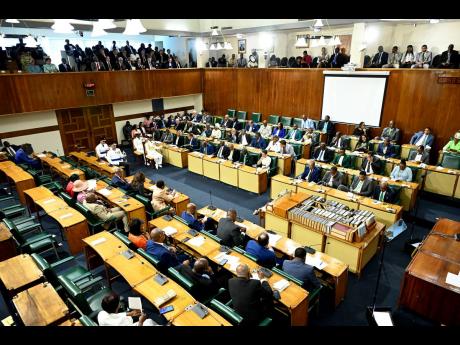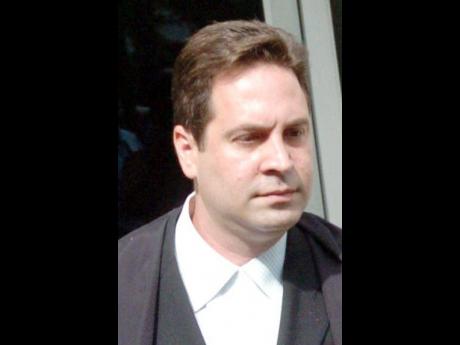Jalil Dabdoub | Is it time to reconsider our constitutional philosophy?
Once again there has been much discussion about constitutional reform in Jamaica. One issue surrounding our constitutional arrangements is that of the removal of the King of England as our head of state and becoming a republic.
Any change to our constitution, must not, as our prime minister has stated, “be empty symbolism”. The whole concept of doing away with the King and having a republic must be deeper than the mere symbolic removal of the King as head of state.
Any change in our constitutional arrangements must bring meaningful change to our systems of governance to ensure a better quality of life for all Jamaicans. This, after all, is the function of government.
The above has brought to mind what is the first and most important foundation in constitutional law in a true democracy. That is, from where does power emanate and where does it reside?
Any change to our constitutional arrangements must recognise that power emanates from and resides in the people and not in government/Parliament. This philosophy should be the foundation of any constitutional change moving forward.
At this time, Jamaica follows the Westminster model of parliamentary democracy. The philosophical foundation that underpins this system is parliamentary sovereignty. The sovereignty of Parliament holds that the legislature has absolute sovereignty and is supreme over all other government institutions, including the executive and judicial bodies.
CONTRASTED
This is to be contrasted with the constitutional philosophy of popular sovereignty. This is the constitutional principle that recognises that government is vested with its authority from the people. It is the people who grant to the government certain powers for the better functioning of society. As such, the government has only the powers that the Constitution gives it. The people are born with and have unalienable rights and powers.
This philosophy of popular sovereignty is the philosophical backbone of the US constitution. The US Declaration of Independence states, among other things, “We hold these truths to be self-evident, that all men are created equal, that they are endowed by their Creator with certain unalienable rights, that among these are Life, Liberty and the pursuit of Happiness. That to secure these rights, Governments are instituted among Men (my emphasis), deriving their just powers from the consent of the governed “.
This philosophy underpins the United States’ judicial system. It is the foundation of constitutional evaluation throughout their legal system. Power rests with and derives from the people, for the people, by the people. It is not the government that grants certain rights to the people. The people already have these rights.
“The US Constitution is built upon the chief foundational cornerstone of popular sovereignty – the fundamental principle that the source of all government power is the people. Sovereign power does not arise from the divine right of kings, political parties of a state, or might of the military. The authority of any commonwealth, rather, is originally vested in and derived from its citizens. This verity exists among every nation of the world – precisely as America’s Founders declared it from the Pennsylvania State House in 1776 – because all human beings are by nature equal, free, and endowed by their Creator with certain unalienable rights, including life, liberty, and the pursuit of happiness. A just government exists only as charted by the people in order to protect the fundamental rights of the people.” The Constitution Guarantees Us, W. West Alen
Examples of the philosophy of popular sovereignty are clear when one reads Article 1, Section 8, Article 10, and the 10th Amendment to the US Constitution.
RETAINED BY PEOPLE
The powers not granted by the people to the government are powers retained by the people. ‘‘The Tenth Amendment was intended to confirm the understanding of the people at the time the Constitution was adopted, that powers not granted to the United States were reserved to the States or to the people. It added nothing to the instrument as originally ratified.’’ United States v. Sprague, 282 US 716, 733 (1931)
If we are to embark on the journey of becoming a republic, perhaps it is time that we the people, at this juncture in our national development, revisit our current constitutional philosophy of parliamentary sovereignty and the constitution given to us by the former colonial powers. Let us make the journey, one which brings real change not mere symbolism. One that sets the foundations for systems and procedures that bring forth true development for our people. Let it not just be a mere formality.
In removing the Queen as head of state, let us draft our own constitution and address the whole question of constitutional change founded on a philosophy in which the source of power emanates from the people and not from government, which is the mere servant of the people. Let Government become the mere servant of the people and not their masters.
Jalil S. Dabdoub is an attorney-at-law. Send feedback to columns@gleanerjm.com.


